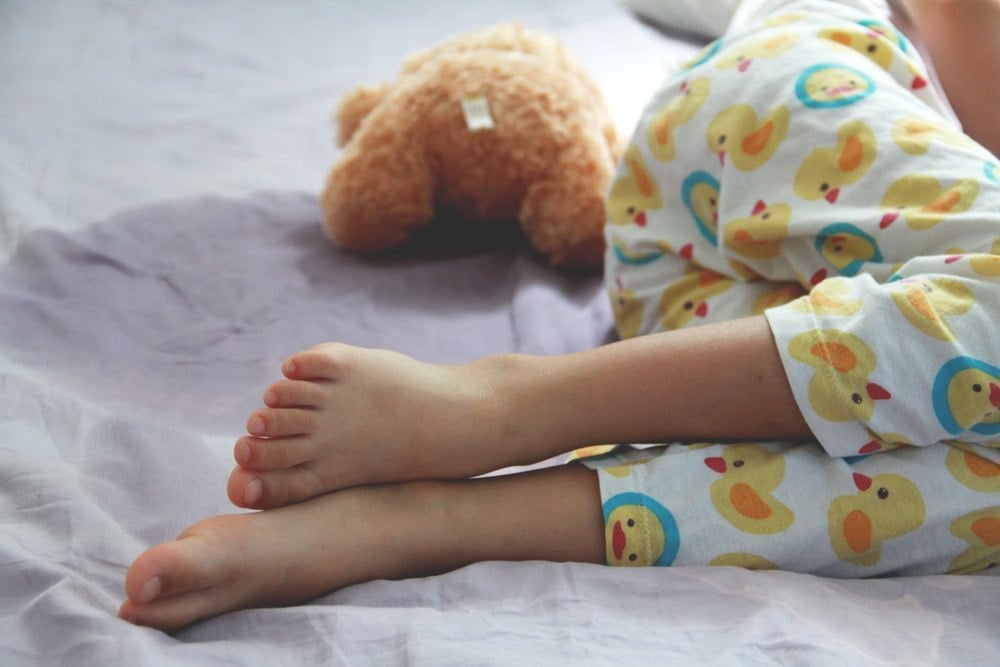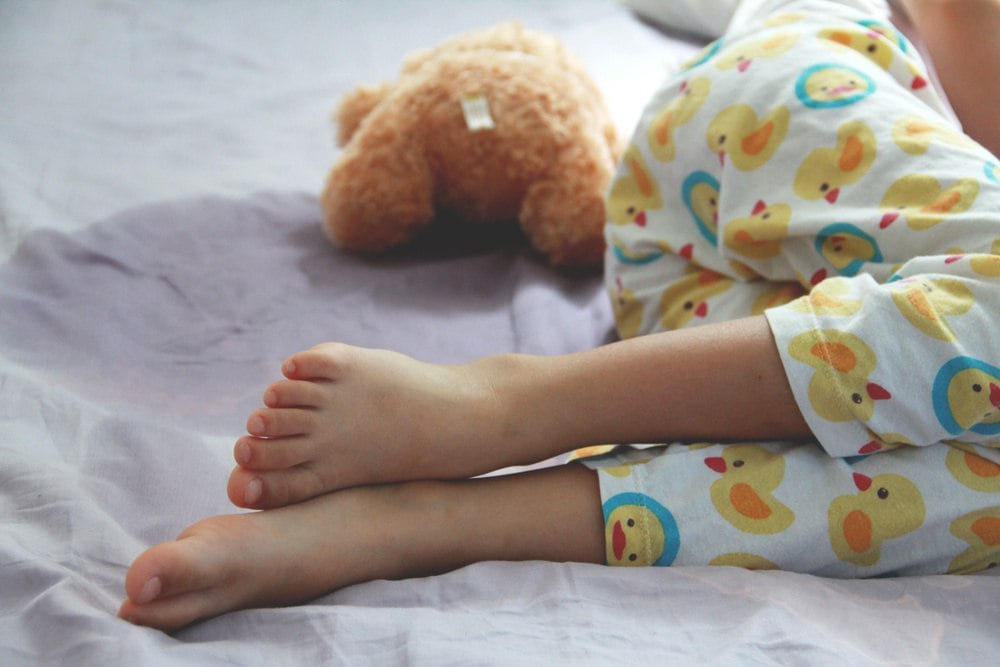Enuresis (Bed Wetting) in Children: Common Causes and Reasons
October 24th, 2017 | 4 min. read


Enuresis is the term giving to older children (over five years old) who wet their bed during the night while they are asleep. Bedwetting can happen several times a week or every night. For many children, bedwetting resolves on its own without any treatment intervention. However, when it doesn’t resolve, parents begin to worry about their child having an underlying medical condition.
Many children think they're alone in wetting the bed every night. This can make them feel bad. However, kids with enuresis are far from alone. Around 15 percent of kids this age are affected. And, while kids will naturally gain control of their bladder at night, they all don't do it at the same age.
There are many causes of enuresis in children and they can range from poor toilet habits in the daytime to emotional problems. However, up to 80 percent of children with enuresis have concurrent obstructive sleep apnea (OSA), making it one of the top signs and symptoms of sleep apnea in children.
Common Causes of Enuresis/Bedwetting in Children
There are two types of bedwetting — these are primary and secondary. With primary bedwetting, your child has been wetting their bed without a break since early childhood. There hasn't been any significant time period where they've been dry at night. With secondary bedwetting, the child has had a significant time period of being dry at night, at least six months.
What Can Cause Primary Bedwetting?
Primary bedwetting can happen for one or a combination of the following causes:
-
Your child doesn't wake up during the night when their bladder is full.
-
Your child can't hold their urine for the whole night.
-
Your child's daytime toilet habits are poor.
-
Your child's urine production at night is large.
Many kids will put off urinating as long as they can or will ignore the urge to urinate altogether. You may recognize this when your child is crossing their legs, squirming, straining their face or holding their groin.
What Can Cause Secondary Bedwetting?
An underlying emotional or medical problem can cause secondary bedwetting. When your child has secondary bedwetting, they're more likely to experience additional symptoms like daytime wetting. Some causes of this type of bedwetting that are common include:
-
Diabetes. If your child is diabetic, they have high blood sugar levels. To eliminate this sugar, their body will increase urine output. In fact, frequent urination is a common symptom in people with diabetes.
-
Urinary Tract Infection. If your child has a urinary tract infection (UTI), they may experience irritation or pain when urinating. A UTI can cause your child to urinate frequently or experience a strong urge to urinate. UTIs in kids could indicate another health condition like an anatomical abnormality.
-
Emotional Problems. If there's a lot of stress in your home such as arguing with your spouse all the time, it could cause your child to wet their bed. Big changes like moving to a new home, starting school, a new baby or other stresses may cause your child to wet the bed. Abused children (sexually or physically) may begin bedwetting.
-
Anatomical or Structural Abnormality. If your child has an abnormality in their muscles, organs or nerves that involves urination, it could cause urinary problems like incontinence that could appear as bedwetting.
-
Neurological Problems. If there are abnormalities, disease or injury in your child's nervous system, it may impact the sensitive neurological balance that controls your child's urination.
-
Genes. Another reason for child enuresis is DNA. Bedwetting may be inherited. In fact, for three out of four child bedwetters, either a parent or close relative had a history of childhood bedwetting. Scientists even found certain genes that cause delayed bladder control at night.
-
Untreated Sleep Apnea. Bedwetting is a common symptom in kids with sleep apnea. If your child starts wetting the bed long after they've been potty trained and display sleep apnea symptoms, like waking abruptly from sleep coughing, snoring, thrashing around while sleeping, or being overly tired, you should have a sleep technologist assess them for sleep apnea.
In most cases, underlying medical causes of bed wetting in children are discovered through a pediatrician who talks with both the parents and child, tests the urine, and performs an exam.
Reasons for Bed Wetting (Enuresis) in Children
As mentioned above, up to 80 percent of children with enuresis have concurrent obstructive sleep apnea, making OSA one of the most common bed wetting reasons in children.
Obstructive Sleep Apnea (OSA)
When your child has untreated sleep apnea, it’s difficult for them to breathe properly at night. This makes their brain have to work harder to draw in oxygen causing it slack off on controlling other bodily functions, such as controlling their bladder.
With sleep apnea, your child's apnea and snoring may be due to enlarged adenoids and tonsils that block their airway. Thus, a sleep apnea treatment in children involving removing their enlarged adenoids and tonsils through a tonsillectomy and adenoidectomy (T&A) may improve their breathing and eliminate their bedwetting.
In one study, children participants aged four or older were referred to a sleep center because sleep-disordered breathing was suspected. During their stay, the clinician asked them if they wet the bed and how frequently. They were also giving a full overnight sleep study (polysomnography) to examine the relationship between enuresis and the Respiratory Disturbance Index (RDI).
The young participants consisted of 90 boys and 70 girls. Sixty-six (41 percent) children said they were experiencing current enuresis. The study concluded that in kids with suspected sleep-disordered breathing, there's a high prevalence of enuresis. This could be due to obstructive sleep apnea effects on bladder pressure, arousal response and urinary hormone secretion.
The Relationship Between OSA and Bedwetting
So, why does sleep apnea cause bedwetting? Quite simply, when your child attempts to go to sleep, their sleep apnea doesn't allow them to sleep well since they can't breathe properly. Their sleep apnea causes them to become overtired and exhausted. Since they're so tired, they don't realize they need to urinate. This leads to the bedwetting.
Often, kids suffering from sleep apnea don't even remember wakeful nights, nor do they remember getting up at night, if they do so at all. It may be hard for your child to wake up when they have to urinate, due to the sleep apnea. It may even be hard for you to wake your child up yourself.
Getting Your Child Evaluated for Bedwetting and Sleep Apnea
Although any potential harm that comes from bedwetting may be more psychological than it is medical, it's still a good idea you have your child evaluated for an underlying medical cause such as sleep apnea. With treatment and positively addressing the problem through different strategies, you can avoid long-term problems and help your child improve their bedwetting.
Sleep disorders in kids not only leave them cranky and tired, but they may have all sorts of behavioral issues in school, at home, and in their social lives. If you suspect your child has sleep apnea or another sleep disorder, consult with their doctor about any and all sleep-related issues they are dealing with. The doctor may recommend a sleep study or surgery to remove their adenoids and tonsils if sleep apnea is occurring.
The good news is, bedwetting and most other sleep-breathing disorders, like sleep apnea, that leads to bedwetting, are treatable and may be corrected with appropriate interventions. When treated, your child's self-esteem will likely improve. They will be less tired, their social life may get better, and their embarrassment will go away. You'll also be free of having to get up every night to change your child's clothes and bed sheets.
If your child does wet the bed regularly, is overtired and you suspect they may have untreated sleep apnea, book an appointment with a Houston ENT & Allergy for an evaluation.
Dr. Martin is double boarded in Otolaryngology as well as Sleep Medicine and the only otolaryngologist to be board certified in Sleep Medicine in Fort Bend County.
Topics:
